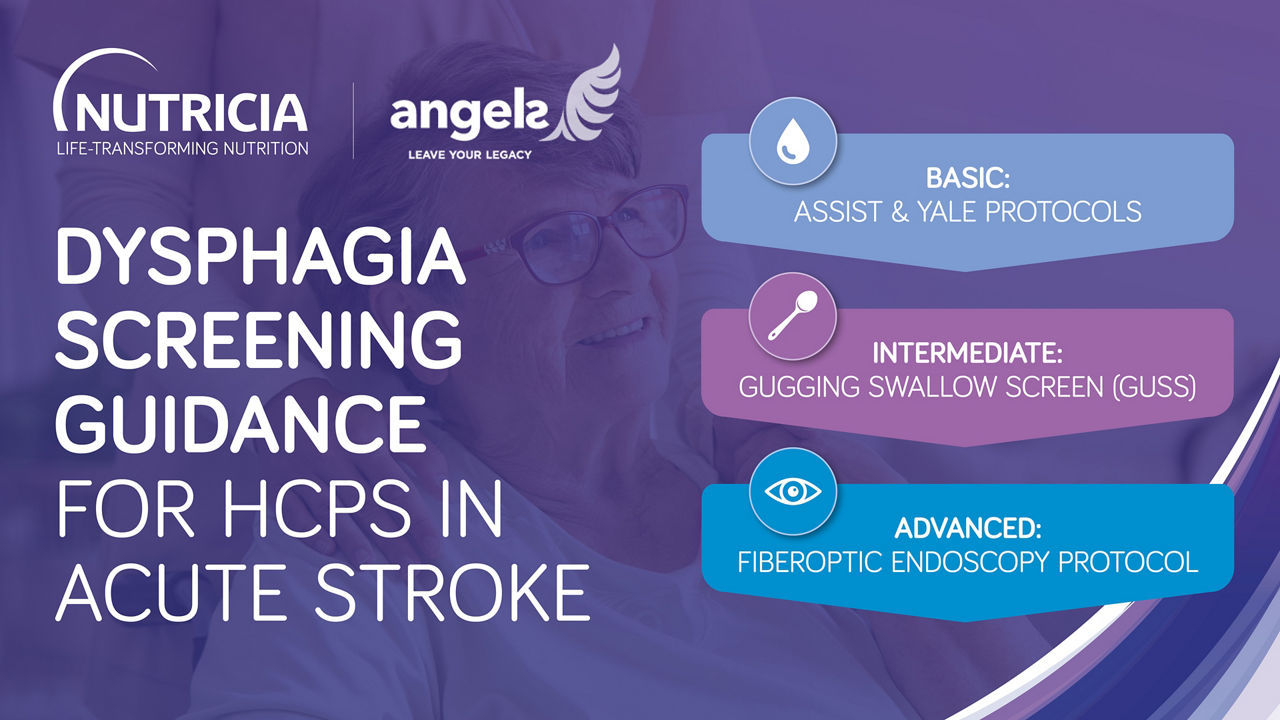The tool captures some of the most common protocols used in this setting to identify aspiration risk, recommend the most appropriate feeding route (enteral or oral) and food/fluid consistency, as well as indicate the possible need for more in-depth assessment.
Once aspiration risk has been assessed, dietary adjustments can be made by changing the texture and consistency of food and drinks, making them easier to swallow, reducing the risk of accidental inhalation, serious lung infection and malnutrition. In cases of severe swallowing difficulty, patients will need to receive their nutrition enterally, such as via nasogastric tube. Nutricia offers a large range of medical nutrition solutions to support the management of disease-related malnutrition, including in dysphagia.




